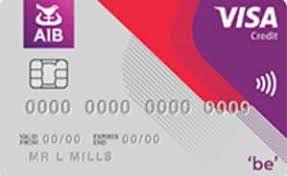Figuring out Ireland’s tax system can be tough. It has many types of taxes for both locals and expats. This piece will simplify Ireland’s tax scene, offering vital advice and smart moves.
By making informed choices, you can handle your taxes well. You’ll be ready to cover what you owe and save money too.


Card AIB Click
Understanding Ireland’s Tax System
Ireland’s tax system is quite complicated. It includes income tax, corporation tax, and VAT. These taxes are key to supporting public services and infrastructure. Understanding these taxes is very important for managing money well.
Learning about Ireland’s tax system is powerful. It helps people make smart decisions with their money. Knowing about taxes means you can plan better. This planning helps save money and avoid extra costs.

Types of Taxes in Ireland
Learning about Ireland’s different taxes is key for both people and companies. Each type of tax helps the economy by paying for important services.
Income Tax
Income tax impacts individuals mainly. It’s based on money made from jobs, business earnings, and other sources. The more you earn, the higher the tax rate.
Corporation Tax
Ireland’s corporation tax is lower than many other places in Europe. It’s charged on business profits. This low tax rate draws in companies from abroad, boosting the economy.
Value Added Tax (VAT)
VAT is a tax on most goods and services sold in Ireland. Different items have different VAT rates. It affects prices and how much people spend. Businesses have to follow specific rules to handle VAT correctly.
Local Property Tax
This tax is based on the value of homes. It’s used for local services and keeping things running smoothly. Owners must report their property’s value truthfully to pay their fair share.
Tax Rates and Thresholds
Ireland’s tax rates aim to be fair by using progressive taxation. This means people with higher incomes pay more taxes. Knowing the current tax bands can help you manage your money better.
Progressive Taxation Explained
Progressive taxation charges higher earners more. In Ireland, this helps lower-income earners pay less tax. It makes society more equal and supports public services.
Current Income Tax Bands
In 2023, there are two main tax bands in Ireland. Earn up to €44,000, and you’re taxed at 20%. Earn more, and the rate is 40%. Understanding this helps you work out your taxes and plan your finances.
Importance of Staying Updated
Tax rules change due to new policies and budgets. It’s important to keep up to avoid surprises. By staying informed, you can manage your money better.
Navigating Tax Filing and Payment
Getting your taxes right in Ireland needs a bit of prep. First, gather all necessary paperwork. This is crucial for a smooth experience. Key documents include payslips, P60 forms, and any extra income info. Having these ready makes filing taxes easier and more accurate.
Gathering Necessary Documentation
Collect all important documents early to make tax filing smoother and reduce mistakes. You’ll need:
- Payslips from your employer
- P60 forms that show your yearly earnings and tax payments
- Bank statements that show interest you’ve earned
- Receipts for things you can deduct on your taxes
Understanding Deadlines
Knowing when taxes are due is key to avoid late fees. In Ireland, the tax year starts on January 1 and ends on December 31. You usually have until October 31 of the next year for self-assessment. Missing this deadline can mean penalties and extra stress.
Submission Methods
Online platforms make filing taxes easier. The Revenue Online Service (ROS) helps by letting you file and pay taxes online. It sends a confirmation once it receives your forms. Knowing how to file, be it online or on paper, helps a lot with tax duties.
Deductions, Credits, and Allowances
It’s vital to know how to cut your tax costs. Through tax deductions, credits, and allowances, you can decrease your financial load. Getting to know these options can really help with your tax planning and managing your budget better.
Tax Deductions
Tax deductions reduce how much of your income gets taxed. This covers expenses for business, education, and some health costs. By using these deductions, you can greatly improve your finances.
Tax Credits
Tax credits cut down what you owe in taxes directly, giving you a quicker benefit than deductions. They cover things like family support, working benefits, and certain investments. Using these credits can save you a lot on your yearly tax bill.
Understanding Allowances
Tax allowances are crucial for those with smaller incomes, like the earned income credit. They lower your taxable income, easing your financial strain. Knowing about these allowances and including them in your budget can provide much-needed relief.
Common Mistakes to Avoid
Tax compliance in Ireland can be tricky. Many people make mistakes that lead to extra costs and penalties. It is key to know about common errors for effective tax planning.
Losing Track of Deadlines
Not keeping an eye on deadlines is a frequent mistake. Missing them can mean penalties or added interest. This raises tax costs. To avoid this, stay organised and set reminders.
Overlooking Available Deductions
Many fail to claim all the deductions they could. Not knowing which expenses are deductible can cost you. It’s crucial to understand what deductions and credits are available to lower your taxes.
Failing to Consult Professionals
Some people don’t see the importance of professional tax advice. Working with tax advisors brings tailored strategies that improve your tax position. Without their help, you might miss chances to make your taxation and finances better.
Tips for Effective Money Management in Ireland
Managing your money well is key to financial health in Ireland. Good budgeting tips can really boost your money journey. Begin by mapping out a budget. It should clearly show your income against what you spend.
Creating a Budget
A solid budget is the cornerstone of managing money well. It helps you set money aside for what’s essential and find where to save. To make a good budget, consider tools or apps. They make visualising your finances simpler, keeping you true to your financial aims.
Tracking Income and Expenses
Keeping tabs on what you earn and spend is vital for a better budget. By monitoring your spending closely, you learn where your cash goes each month. This habit shines a light on possible savings, pushing you towards spending wisely.
Setting Financial Goals
It’s crucial to have clear financial aims. They could be saving for a trip, a house, or your golden years. Setting these goals helps steer your money handling. Break them into smaller steps to make progress easy and keep your dreams in sight.
How to Manage Your Taxes Efficiently
Managing taxes well is key to keeping your finances healthy. Thanks to new digital tools, tax management is easier. These tools help with tax tasks and following rules. Talking to financial advisors also helps. They give advice that’s easy to understand, making tough tax rules simpler and helping improve how you handle your money.
Using Digital Tools
Digital tools, like budgeting apps and tax software, are a big help. They keep track of what you earn and spend and work out what you might get back. You get benefits like:
- Automated reminders for deadlines and payments
- Insights into spending habits
- Easy accessibility to financial records for audits
- Streamlined reporting for tax purposes
Consulting Financial Advisors
Talking to a financial advisor makes tax choices clearer. They look at your money situation and suggest ways to save more. They’re good at dealing with:
- Complex tax laws
- Opportunities for tax deductions and credits
- Long-term financial planning
- Investment decisions with tax implications
Specific Tax Considerations for Expats
Expats in Ireland deal with unique tax issues. Knowing about tax residency is key. It affects how much tax you might pay and what you owe.
It’s vital to understand these rules. This helps avoid paying too much tax.
Tax Residency Rules
In Ireland, being there a lot decides if you’re a tax resident. If you’re there for 183 days in a year, you’re a resident for tax. Or, if over two years, you’re there for 280 days, with at least 30 days in the current year, you’re also a resident.
This decides how you’re taxed on money you earn anywhere in the world. Non-residents only pay tax on what they earn in Ireland.
Understanding Tax Treaties
Tax treaties help make taxes simpler for expats. Ireland has agreements with many countries. These stop people from paying tax twice on the same money.
They set rules on who taxes what income, like dividends. Knowing these treaties saves expats lots of money.
Recent Changes to Tax Legislation
It’s vital to stay up-to-date with tax law changes to make the most of our finances. Every year, the budget may change, affecting both personal and business money matters. Such changes can introduce new ways for taxpayers to save money and grow financially.
Annual Budget Impacts
Each year, the budget sets new rules that impact taxes. Changes in tax brackets or rates could happen, influencing what we owe. It’s important to keep an eye on these changes for our short and long-term financial plans. By understanding these effects, we can make smarter choices about our spending and saving.
New Tax Incentives and Reliefs
The government often brings in tax breaks to help certain areas or address problems. These could be credits for investing in green energy or help for small companies. By looking into these tax breaks, we can find ways to save. This knowledge helps us manage our money better and stay in line with new tax laws.
Resources for Tax Assistance in Ireland
Finding your way through Ireland’s tax system can be simpler with the right help. The Revenue Online Service (ROS) is key. It gives you everything you need, from checking tax details to filing returns and making payments, all online.
If you need more help, reach out to local Revenue Offices. They provide custom support for any tax question or issue. Getting help from these resources keeps you on track and makes dealing with taxes much easier.
Conclusion
Understanding Ireland’s tax system is key to manage your money well. As you learn about different tax types, rates, and how to file them, you’ll be better at planning your finances. Knowing these details helps you stay on the right side of the law and make choices that benefit your money.
To save a lot of money, use deductions and credits wisely. It’s not only important to follow the tax rules, but also a chance to improve your finances. Also, make sure you know about deadlines and avoid common mistakes. Being careful helps you feel more at ease and manage your taxes confidently.
Learning about tax matters makes for a smoother financial path. Whether you’re just looking after yourself or you run a business, being ahead of your taxes is wise. It will help secure a better financial future for you in Ireland.
FAQ
What types of taxes must I pay in Ireland?
How can I file my taxes in Ireland?
What are the current income tax rates in Ireland?
What are some common mistakes to avoid when managing taxes in Ireland?
How can I effectively manage my personal finances in Ireland?
Are there special tax considerations for expats in Ireland?
Where can I find assistance for my tax-related queries in Ireland?
How do recent budget announcements impact tax obligations?
Conteúdo criado com auxílio de Inteligência Artificial


